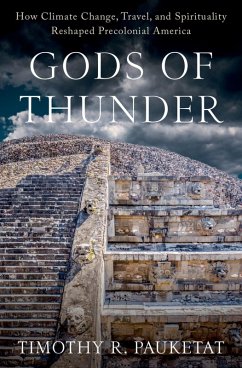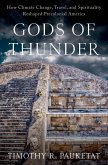A sweeping account of Medieval North America when Indigenous peoples confronted climate change. Few Americans today are aware of one of the most consequential periods in North American history--the Medieval Warm Period of seven to twelve centuries ago (AD 800-1300 CE)--which resulted in the warmest temperatures in the northern hemisphere since the "Roman Warm Period," a half millennium earlier. Reconstructing these climatic events and the cultural transformations they wrought, Timothy Pauketat guides readers down ancient American paths walked by Indigenous people a millennium ago, some trod by Spanish conquistadors just a few centuries later. The book follows the footsteps of priests, pilgrims, traders, and farmers who took great journeys, made remarkable pilgrimages, and migrated long distances to new lands. Along the way, readers will discover a new history of a continent that, like today, was being shaped by climate change--or controlled by ancient gods of wind and water. Through such elemental powers, the history of Medieval America was a physical narrative, a long-term natural and cultural experience in which Native people were entwined long before Christopher Columbus arrived or Hern?n Cort?s conquered the Aztecs. Spanning most of the North American continent,
Gods of Thunder focuses on remarkable parallels between pre-contact American civilizations separated by a thousand miles or more. Key archaeological sites are featured in every chapter, leading us down an evidentiary trail toward the book's conclusion that a great religious movement swept Mesoamerica, the Southwest, and the Mississippi valley, sometimes because of worsening living conditions and sometimes by improved agricultural yields thanks to global warming a thousand years ago. The author also includes a guide to visiting the archaeological sites discussed in the book.
Dieser Download kann aus rechtlichen Gründen nur mit Rechnungsadresse in A, B, BG, CY, CZ, D, DK, EW, E, FIN, F, GR, HR, H, IRL, I, LT, L, LR, M, NL, PL, P, R, S, SLO, SK ausgeliefert werden.









